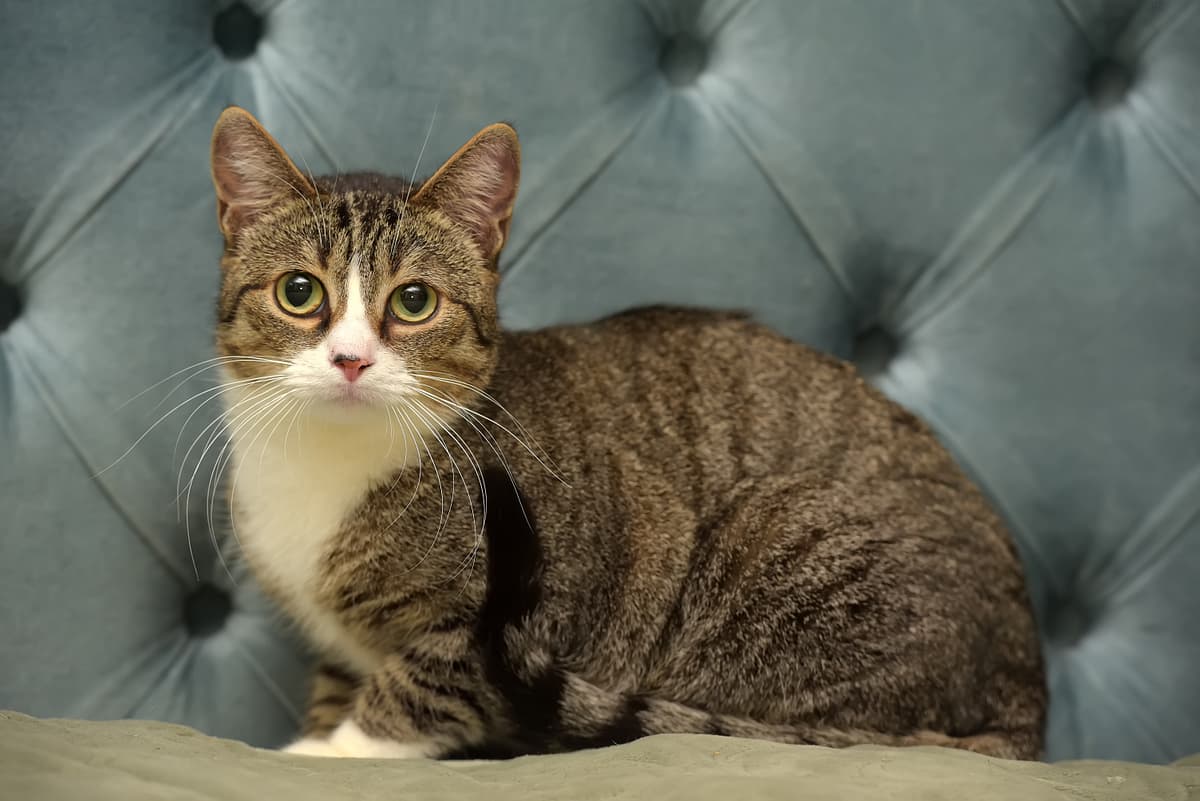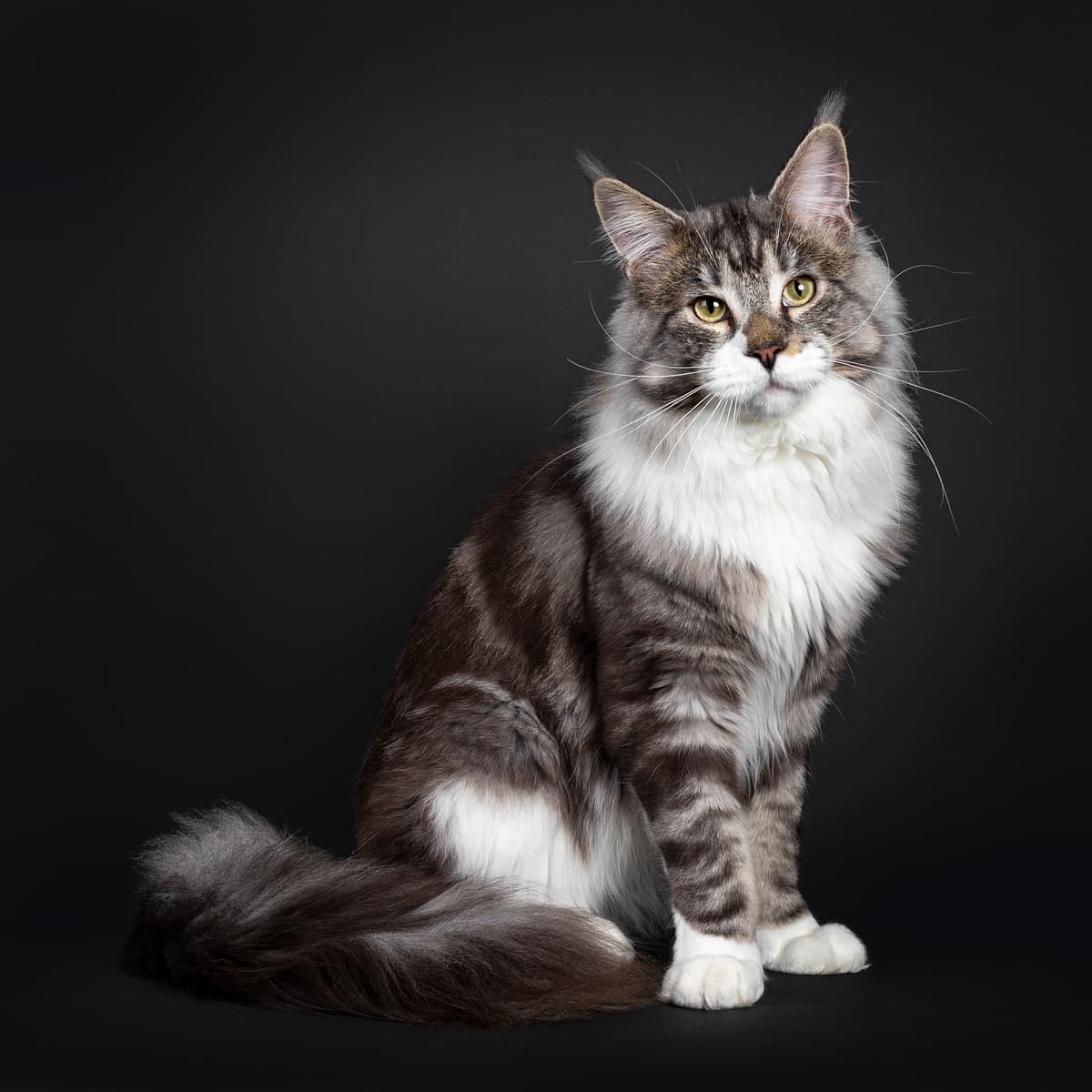European Shorthair vs Maine Coon
Discover the differences between European Shorthair and Maine Coon to make the best choice for your situation.
Try different breeds

European Shorthair
Adaptable, playful, and affectionate, this breed thrives in both quiet homes and active families. European Shorthairs are known for their intelligence, curiosity, and easygoing companionship.

Maine Coon
A gentle giant with a luxurious coat and playful spirit, Maine Coons thrive as affectionate companions. Their intelligence and adaptability make them ideal for families and multi-pet households.
Quick comparison
Medium
4–7 kg
Shorthaired, dense
14–20 years
3–5 kg
Moderately active
Large
6–8.5 kg
Longhaired, shaggy
12–15 years
4.5–6.5 kg
Moderately active
Personality & behavior
Compare the personality traits and behavioral characteristics of both breeds.
European Shorthair
Enjoys social contact, usually tolerant with people
Learns routines and tricks with relative ease
Moderate activity, enjoys play but not hyperactive
Likes interactive toys and regular playful activity
Adjusts well to changes in environment or routine
Maine Coon
Affectionate and sociable with family and strangers
Learns quickly and solves problems with ease
Moderate activity needs, not overly energetic
Enjoys games and interactive toys regularly
Adjusts well to new environments and changes
Care needs
Exercise, grooming, and daily care requirements
European Shorthair
Hypertrophic cardiomyopathy, dental disease
Maine Coon
Hypertrophic cardiomyopathy, hip dysplasia
Suitability
How well each breed fits different living situations and families
European Shorthair
Easy to manage
Adaptable and generally easygoing, suitable for those new to cat ownership
Suits apartments
Comfortable in smaller spaces if given enough stimulation and play
Fits active homes
Enjoys interactive play and can keep up with busy routines
Good with children
Patient and tolerant, copes well with gentle, respectful children
Gets along well
Social and non-aggressive, usually coexists peacefully with other pets
Not best alone
May get bored or lonely if left alone for extended periods
Maine Coon
Great choice
Friendly and adaptable, Maine Coons are easy for beginners to handle and enjoy.
Good fit
They adjust well to apartment life if given enough space and stimulation.
Highly suitable
Their playful and energetic nature matches active family lifestyles.
Perfect fit
Gentle and patient, they interact well with young children.
Very friendly
Usually sociable, they often get along with other pets in the home.
Not ideal
Maine Coons need companionship and may become lonely if left alone frequently.
Breed strengths
What each breed excels at and their best qualities
European Shorthair
- Adaptable to various living environments
- Generally healthy with robust constitution
- Good mouser and natural hunter
- Social but not overly demanding
- Low grooming requirements due to short coat
Maine Coon
- Affectionate with family members
- Generally tolerant with children
- Adaptable to various household environments
- Playful yet gentle temperament
- Good with other pets when socialized
Challenges & considerations
Potential challenges and considerations for each breed
European Shorthair
- Can be territorial with other cats
- Prone to boredom if under-stimulated
- May be shy with unfamiliar people
- Needs regular activity to prevent obesity
- Independent nature may resist training
Maine Coon
- Requires frequent grooming due to long coat
- Prone to dental and gum issues
- Needs ample space for exercise
- Can develop separation anxiety when left alone
- Risk of hypertrophic cardiomyopathy heart disease
Ready to choose your perfect breed?
Learn more about each breed or compare other breeds to find the perfect match for your lifestyle.
Discover more helpful tools
Make use of our other free tools to get the most out of your pet experience
